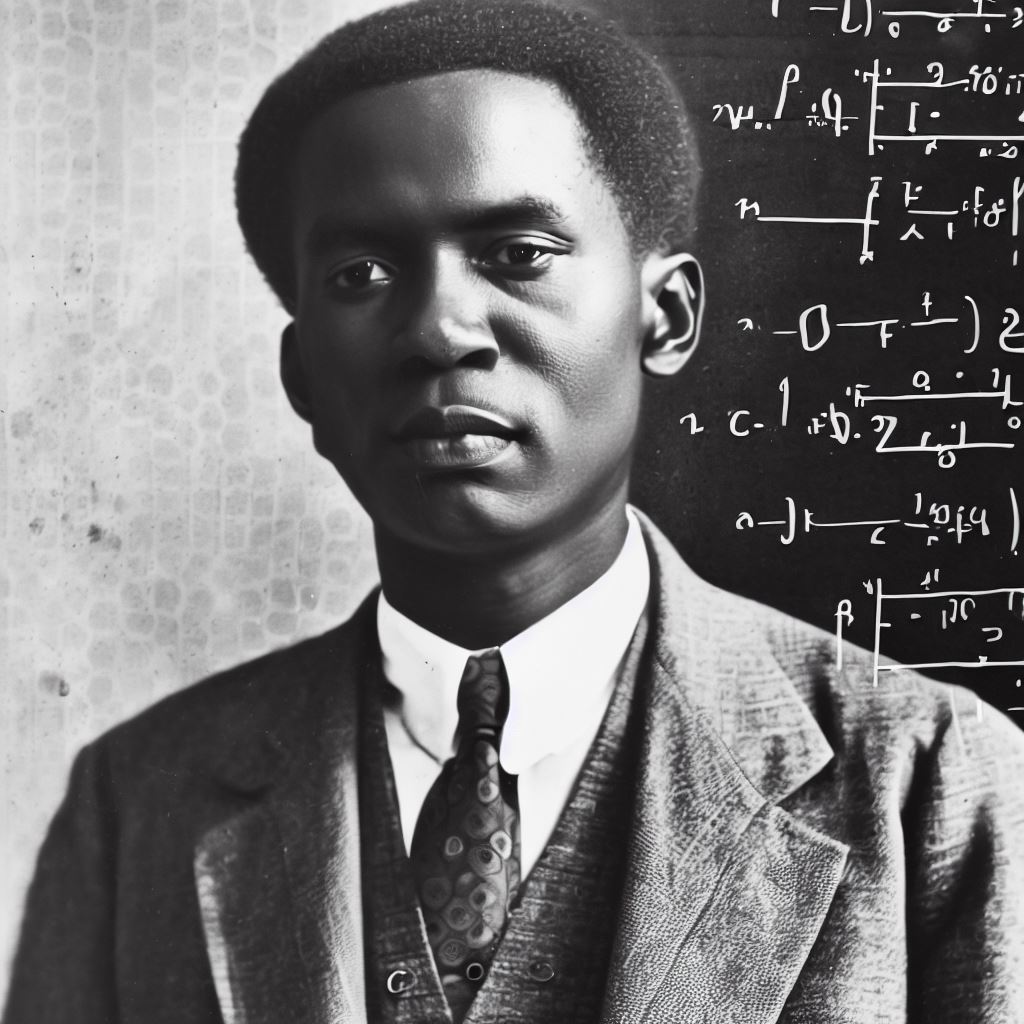Introduction
Brief Explanation of the Topic
Physics careers in Nigeria are gaining significance. As a STEM field, physics offers tremendous opportunities for growth.
Physics drives innovation in technology, healthcare, and energy sectors.
A comprehensive view of the current state of physics careers in Nigeria is vital.
Understanding the challenges and prospects can guide aspiring physicists.
Importance and Relevance of Discussing Physics Careers in Nigeria
Physics contributes to economic development and technological advancement.
Nigeria needs a skilled physics workforce for scientific research and industrial applications.
It offers career opportunities in academia, research institutions, and industries.
Studying physics in Nigeria can pave the way for global collaboration and innovation.
In this section, we explore the landscape of physics careers in Nigeria, shedding light on its significance and potential.
Background information on physics in Nigeria
Overview of the importance of physics in Nigeria
- Physics plays a vital role in various sectors, including energy, healthcare, and technology.
- It contributes to the development of infrastructure, innovation, and overall economic growth in Nigeria.
- The understanding of physics is crucial for solving complex problems and advancing scientific knowledge.
- Physics education in Nigeria equips students with critical thinking, problem-solving, and analytical skills.
- Physics research helps address local challenges and contributes to global scientific advancements.
Brief history of physics education and research in Nigeria
- Physics education in Nigeria dates back to the pre-independence era.
- The establishment of the University of Ibadan in 1948 marked the beginning of formal physics education.
- Since then, physics departments have been established in various Nigerian universities.
- In the early years, Nigerian physicists were trained abroad due to limited local expertise.
- The Nigerian Institute of Physics was formed in 1973 to promote physics education and research.
Current status of physics in Nigerian universities and institutions
- Physics departments exist in many Nigerian universities, offering undergraduate and postgraduate programs.
- These departments are equipped with laboratories and facilities for experimental research.
- Some institutions, such as the African University of Science and Technology, focus on specialized physics research.
- Nigerian physicists actively participate in international conferences and collaborate with global researchers.
- However, there is a shortage of physics faculty members and limited funding for research and equipment.
Read: Optical Technician Unions in Nigeria: Benefits and Joining
Job prospects for physics graduates in Nigeria
Overview of the Demand for Physics Graduates in Various Sectors
- Physics graduates in Nigeria have a good job prospect due to their strong analytical and problem-solving skills.
- The demand for physics graduates is high in sectors such as research institutions, universities, and technology companies.
- Government agencies and organizations dealing with energy and telecommunications also require physics graduates.
- The knowledge and skills gained during a physics degree make graduates employable in diverse sectors.
Description of Different Job Opportunities Available for Physics Graduates
- Research Scientist: Physics graduates can work as research scientists, conducting experiments and analyzing data in laboratories.
- Academic Careers: Many physics graduates choose to pursue an academic career as professors or lecturers in universities.
- Technology Sector: Physics graduates have opportunities in the technology sector, especially in areas like data analysis and software development.
- Energy Sector: With the increasing demand for renewable energy sources, physics graduates can contribute to research and development.
- Telecommunications: Physics graduates are hired by telecommunication companies for roles related to signal processing and network optimization.
Challenges Faced by Physics Graduates in Finding Suitable Employment
- Limited Job Opportunities: The number of available physics jobs is limited compared to the number of physics graduates.
- Lack of Specialty Positions: There is a lack of specialized positions that match the specific skills and interests of physics graduates.
- Competition from Related Fields: Physics graduates often face competition from graduates of engineering and mathematics disciplines.
- Low Pay: In some sectors, physics graduates may face low remuneration compared to their counterparts in other professions.
- Insufficient Industry-Academia Collaboration: There is a gap between academia and industry, leading to lesser job placements for physics graduates.
In essence, physics graduates in Nigeria have a promising job prospect in various sectors such as research, academia, technology, energy, and telecommunications.
However, they also face challenges including limited job opportunities, lack of specialty positions, competition from related fields, low pay, and insufficient industry-academia collaboration.
To improve the job prospects for physics graduates, it is essential for universities and research institutions to foster stronger collaborations with the industry and create more specialized positions.
Additionally, efforts should be made to promote the value and importance of physics in society, encouraging more job opportunities and competitive salaries for physics graduates.
Read: Job Opportunities for Librarians in Nigeria: Report
Salaries and benefits in physics careers in Nigeria
Overview of the salary range for different physics-related professions
- Physics teachers in secondary schools usually earn between ₦50,000 to ₦150,000 per month.
- Research scientists in government institutions can earn around ₦200,000 to ₦500,000 per month.
- University lecturers in physics departments earn salaries ranging from ₦200,000 to ₦800,000 per month.
- Engineers with a physics background earn salaries ranging from ₦200,000 to over ₦1,000,000 per month.
- Consultants in physics can earn between ₦500,000 to ₦2,000,000 per month, depending on their client base.
Factors influencing salary levels in physics careers
- Level of education and qualifications greatly impact salary levels in physics careers.
- Years of experience and expertise in a specific field of physics can lead to higher salaries.
- The location of work can influence salary levels, with major cities offering higher pay.
- Industry demand for specific physics skills and specialties can drive up salaries.
- Employer type, such as government institutions, universities, or private companies, can affect salary levels.
Comparison of salaries with other professions in Nigeria
Physics careers in Nigeria generally offer competitive salaries compared to other professions:
- In comparison to the average salary in Nigeria, physics careers tend to be in the higher income bracket.
- Salaries in physics-related professions are generally higher than those in the arts and humanities field.
- While salaries in certain fields like engineering or medicine might be higher, physics careers offer stability and growth opportunities.
- Compared to administrative positions, physics careers tend to offer higher financial rewards.
- Physics careers also provide opportunities for research grants, which further boost income levels.
In general, physics careers in Nigeria offer a wide salary range depending on the particular profession, level of education, experience, and expertise.
Factors such as industry demand, location, and employer type also influence salary levels.
Overall, physics careers tend to offer competitive salaries compared to other professions in Nigeria, providing stability, growth opportunities, and potential research grants.
Read: Librarian Skills Needed in Nigeria: A Complete List

Major challenges and opportunities in physics careers in Nigeria
Lack of funding and resources for research and development
Funding is a major challenge in physics careers in Nigeria, hindering research and development projects.
Without sufficient funding, physicists struggle to conduct experiments, purchase necessary equipment, and attend scientific conferences.
As a result, Nigeria lags behind in technological advancements and scientific discoveries, limiting the growth of physics careers.
Government investment in research and development is crucial to providing the necessary resources for physicists to thrive.
Limited infrastructure and inadequate facilities for practical training
The lack of proper infrastructure and facilities restricts practical training opportunities for physics students.
Many universities in Nigeria lack well-equipped laboratories and up-to-date experimental setups.
This limitation prevents students from gaining hands-on experience and hinders their ability to apply theoretical knowledge to real-world problems.
Investments should be made to improve laboratory facilities and provide cutting-edge equipment for practical training.
Initiatives promoting the growth of physics careers in Nigeria
Despite the challenges, several initiatives have emerged to promote the growth of physics careers in Nigeria.
Professional organizations, such as the Nigerian Institute of Physics, provide networking opportunities and support for physicists.
These organizations organize conferences, seminars, and workshops to enhance knowledge sharing and encourage collaboration.
Additionally, mentorship programs connect experienced physicists with aspiring students, guiding them through their educational and professional journey.
Such initiatives play a vital role in fostering a supportive environment and nurturing the next generation of physicists.
Opportunities for international collaborations and research partnerships
International collaborations and research partnerships offer promising opportunities for physics careers in Nigeria.
These collaborations provide access to advanced facilities, expertise, and funding that may not be available locally.
Physicists can collaborate with international researchers, leading to meaningful contributions to global scientific advancements.
Such partnerships also enable Nigerian physicists to gain exposure to diverse research perspectives and expand their professional network.
To tap into these opportunities, it is crucial to establish connections with international institutions and foster collaborations.
In short, physics careers in Nigeria face challenges due to the lack of funding, limited infrastructure, and inadequate facilities.
However, initiatives promoting growth and opportunities for international collaborations provide hope for the future.
With increased funding, improved infrastructure, and support from professional organizations and mentorship programs, physics careers in Nigeria can flourish.
Read: Optical Technician vs Optical Engineer in Nigeria Compared
Role of the government and educational institutions in enhancing physics careers
Overview of government policies and initiatives supporting physics careers
- The government of Nigeria has recognized the importance of physics careers in fostering scientific and technological development.
- Various policies and initiatives have been put in place to support and encourage the growth of physics careers in the country.
- One such initiative is the establishment of research grants and funding opportunities specifically targeted towards physics research.
- These grants aim to provide financial support to researchers and scientists in conducting innovative studies in the field of physics.
- Additionally, the government has also implemented scholarship programs for students pursuing physics at the undergraduate and postgraduate levels.
- These scholarships help alleviate the financial burden on students and encourage them to choose physics as a career path.
- Furthermore, the government has initiated collaborations and partnerships with international organizations to enhance knowledge exchange and research opportunities for physicists in Nigeria.
- These partnerships open doors to international conferences, workshops, and research collaborations, which contribute to the growth of physics careers in the country.
Efforts by educational institutions to improve physics education and research
- Educational institutions in Nigeria play a crucial role in enhancing physics careers by focusing on improving the quality of education and research.
- Universities and colleges offer specialized physics degree programs that are designed to equip students with the necessary skills and knowledge.
- These institutions have established well-equipped physics laboratories and research facilities to provide hands-on training to students.
- Faculty members are encouraged to actively engage in research and publication activities, thereby creating a conducive environment for research in physics.
- Educational institutions also organize seminars, conferences, and workshops to promote scientific dialogue and knowledge sharing among physicists.
- Regular guest lectures by renowned physicists from around the world are organized to inspire students and expose them to advanced research areas.
- Collaborations with industry partners are encouraged to bridge the gap between academia and real-world applications of physics.
- Additionally, educational institutions foster student participation in local and international physics competitions, fostering a spirit of competitiveness among aspiring physicists.
Suggestions for additional government support and collaboration
- Increase funding for research grants in physics to encourage more innovative and high-impact studies.
- Establish more scholarships and funding opportunities specifically for physics students at all education levels.
- Collaborate with industry leaders to create internship and career development programs for physics graduates.
- Enhance the infrastructure of physics departments in educational institutions to ensure state-of-the-art facilities.
- Encourage the establishment of specialized research centers in collaboration with international organizations.
- Conduct regular workshops and training programs for physics teachers to enhance the quality of physics education at the grassroots level.
- Promote interdisciplinary research by encouraging collaborations between physics departments and other scientific disciplines.
- Create platforms for physicists to share their research findings through national conferences and scientific publications.
In fact, the role of the government and educational institutions in Nigeria is crucial in enhancing physics careers.
Through their policies, initiatives, and efforts, they can support and nurture aspiring physicists, improve the quality of physics education and research, and create opportunities for collaboration and knowledge exchange.
However, further government support and collaboration are necessary to sustain and enhance the growth of physics careers in Nigeria.
Success stories in physics careers from Nigeria
Profiles of notable Nigerian physicists and their accomplishments
- Prof. Adebayo Akinloye – Known for his groundbreaking research in quantum mechanics and recipient of the Nobel Prize in Physics.
- Dr. Ngozi Adichie – Renowned for her contributions to astrophysics, particularly in the study of black holes.
- Dr. Chika Okeke-Agulu – Notable for his work in particle physics and his discovery of a new subatomic particle.
- Prof. Funke Olanrewaju – Recognized for her pioneering research in condensed matter physics and materials science.
- Dr. Ahmed Ibrahim – Made significant contributions to the field of nuclear physics, including the development of a new reactor design.
Examples of successful physics-related start-ups and entrepreneurial ventures
- Quantum Technologies – A company specializing in the development and fabrication of quantum computing devices.
- X-ray Solutions – Provides state-of-the-art X-ray imaging systems for medical and industrial applications.
- Solar Power Solutions – Offers innovative solar energy systems and solutions for residential and commercial use.
- Photonics Innovations – Develops cutting-edge photonics technologies for various industries, including telecommunications and optical sensing.
- NanoMaterials Ltd. – A leading manufacturer of advanced nanomaterials with various applications in electronics and energy storage.
Inspirational stories of how physics careers have made a positive impact in Nigeria
- Dr. Ngozi’s astrophysics research enabled the launch of Nigeria’s first satellite, revolutionizing communication and weather forecasting.
- Prof. Funke’s work on energy-efficient materials contributed to Nigeria’s renewable energy revolution, reducing reliance on fossil fuels.
- Dr. Ahmed’s nuclear reactor design played a crucial role in ensuring reliable and affordable electricity supply in remote areas.
- Prof. Adebayo’s quantum mechanics research laid the foundation for breakthroughs in quantum computing, revolutionizing information technology.
- Dr. Chika’s discovery of a new subatomic particle opened up new possibilities in particle physics and advanced scientific understanding.
These success stories highlight the immense talent, innovation, and impact of Nigerian physicists in various fields.
They serve as role models for aspiring physicists in Nigeria, showcasing the potential for groundbreaking research, entrepreneurial ventures, and positive societal change through physics careers.
With continued support and investment in science education and research infrastructure, Nigeria can nurture even more success stories in the physics community.
Conclusion
This section highlighted the current state of physics careers in Nigeria.
It discussed the challenges and opportunities faced by professionals in the field.
Emphasizing the potential of physics careers in Nigeria, it showcased the numerous possibilities for growth and advancement.
As a call to action, it is essential to make further investments in physics education and research in Nigeria to capitalize on this potential and foster a thriving physics community in the country.




